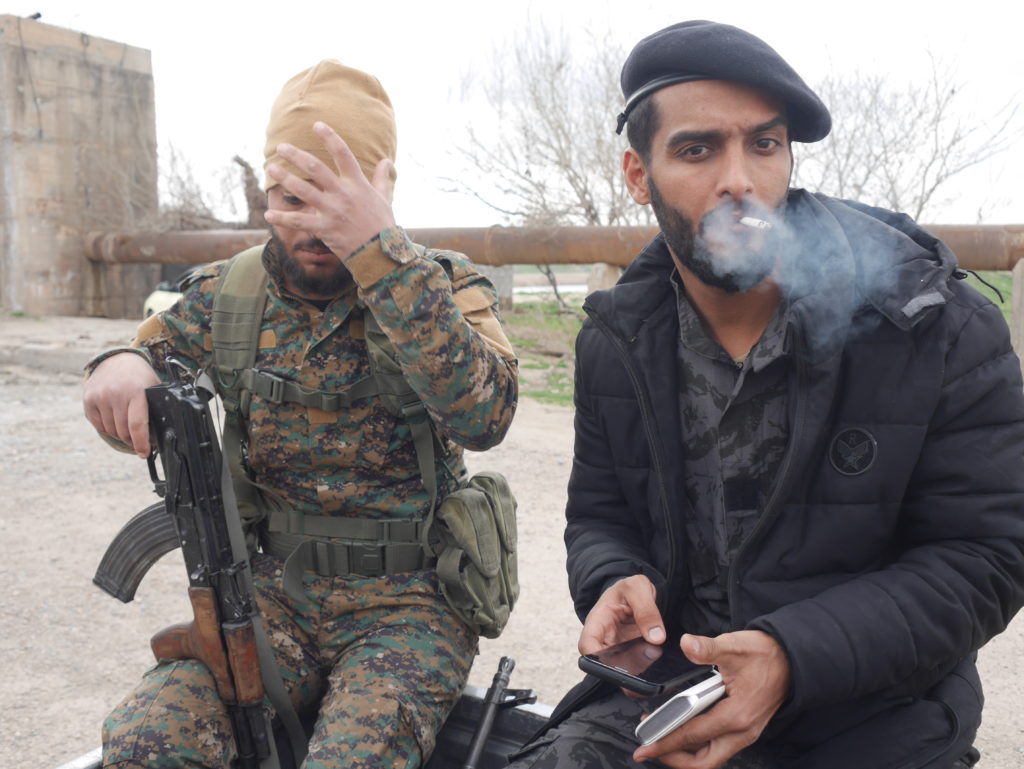
Deir ez-Zor- I’ve spent so much of my adult life trying to unpack the intricacies of men fighting in societies other than my own. I make it my business to wade deep into the waters of armed conflicts that I so often feel are misunderstood or misinterpreted by the outside world, partly, because they, us, are simply not there. The civil-cum-transnational fight for Syria is particularly complex in this regard. For many in the West, the hallmark of this forlorn place was or still is the choreographed beheadings of foreign hostages in mid-2014. That gruesome episode is in no way representative of Syria or Syrians as a whole. It would be like if someone from the EU thought of the United States as one continuous school shooting episode from which it could never recover.
In that sense, the takfiri’een, those who appointed themselves the capacity to declare others apostates deserving execution, grossly misrepresent this shattered nation-state on the world stage. The worst of a minute minority of humanity was in effect able to define this war aided by big media. This occurred on our collective watch at the world’s peril. This goes for within major media outlets as well. In 2017 and 2018, I had editors I contacted–when I was long gone from this place in the safety of Dubai or Thailand– say they would not take freelance work from here because they have a foggy policy against such though in each case they are failed to articulate precisely why or obfuscated their reasoning. Some hinted that they had a blockade in effect narrowly on freelance work out of Syria because it could encourage other hopeful, perhaps naive correspondents to come here not being entirely aware of the risk or maybe because of the reckless allure risk can provide for some. But writing armchair pieces from the comfort of a Beirut or Istanbul cafe while Whatsapping sources here is just not the same as being here on the ground. Anecdotes cannot be a substitute for experience.
Friends here assume it was because of what happened in the summer and fall of 2014 ostensibly in ar-Raqqa governorate or perhaps the disappearance of Marine veteran Austin Tice in 2012. What was curious to me was even as the security paradigm in Syria had clearly shifted since the period of extraordinary risk in 2014-2015, media outlets back home hadn’t adapted their polices to reflect this sea change in security here. Maybe that’s all changed by 2019 but I’m not clear. Last week famed UK songstress Joss Stone performed in Deirik accompanied by legendary British cameraman Paul Conroy who was nearly killed in Homs city in 2012 his first return to Syrian territory since if that demonstrates anything.
Since Afghanistan in the autumn of 2001 I have thrown myself into one maelstrom after another in a bid to understand why other people fight one another with aged Soviet or Soviet-inspired weaponry. The West, the United States in particular, fails these people time and again yet they still fight, still hope, still live. From North Africa to South Asia, I travel, I risk, I try to understand. I’m not fascinated by violence by any means but by the push-pull factors of ethno-linguistic or religio-political dynamics that drive these rich, neglected societies. I’m here primarily for the conversation in any language or dialect.
Deir ez-Zor is one such place. It’s not quite ready for a stunning British pop star yet but it is accessible. So many players, so much about-to-be squandered opportunity. . Such lovely people.